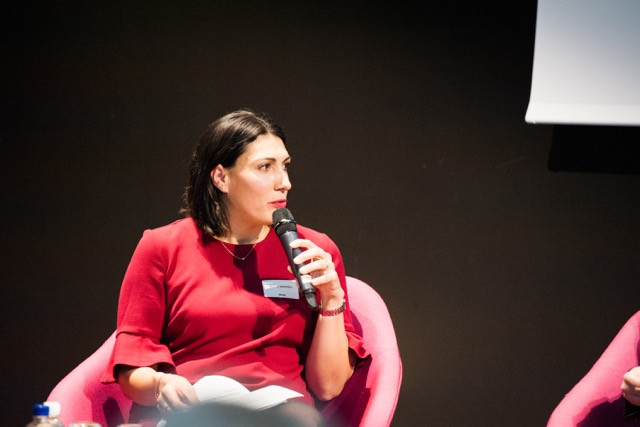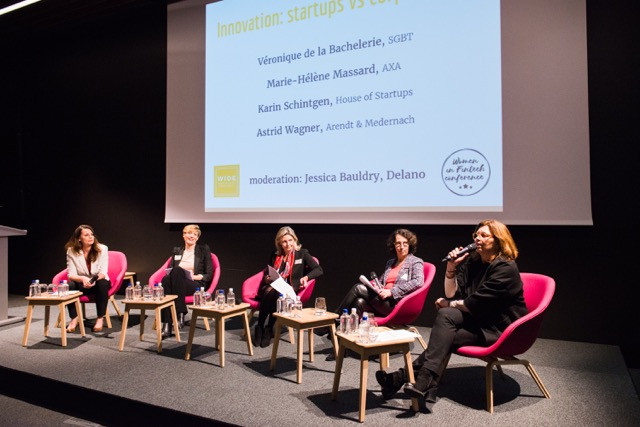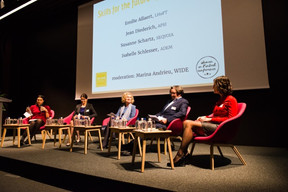“Sometimes I’m considered a feminist in my government because I support quotas,” he said, adding: “For some people it wasn’t a good idea to have quotas. I would prefer not to have quotas either because it shows we’re not ready in our minds.”
Bettel was speaking at the second Fintech conference organised by Women in Digital Empowerment (Wide) which focused on skills and innovation. The prime minister explained he had left his sick bed to speak at the event because the theme of diversity was close to this heart.
He spoke about the importance of digital training and the barriers discouraging women from entering technology careers. He also spoke about fintech regulation, calling for a digital single market and digital education strategy.
2018 fintech forecasts
Among the eight panelists speaking in the two panels were the Luxembourg House of Financial Tehnology’s (LHoFT) Emilie Allaert who issued three trend expectations for 2018. She said new new technology which increases financial inclusion would be sought-after as would fund technology.
“As Luxembourg is the second centre for funds in the world, it’s key we maintain a competitive advantage. We have to work on processes and improving efficiency,” she said.
She also highlighted the opportunities for fintech startups to develop technology that helps companies tackle the “tsunami of regulation”. “There are a lot of challenges for the industry. Regtech can help you deal with these challenges,” she said, explaining that LHoFT hopes to open a regtech accelerator in Luxembourg.
Worldwide, Allaert expected to see more artificial intelligence technology being developed, “especially in asset management”. She said she also hoped that governments around the world would take positions regarding cryptocurrencies and Initial Coin Offerings (ICOs). She said she hoped they would favour ICOs which can add value to the industry.
Payment Service 2
Her predictions were joined by those of Jean Diederich of the association for IT professionals Apsi.
Diederich said he expected to see more collaboration between fintechs and banks as a result of the payment service 2 directive, which has yet to be adopted into law but which he said would increase access for the fintech community to banks. “Another element is the customer experience which becomes more mobile and also the biometrics as an authentification sector, to simplify access to digital platforms”, he said.
He added that instant payment in the banking community would become a hot topic in Europe in general.























































































